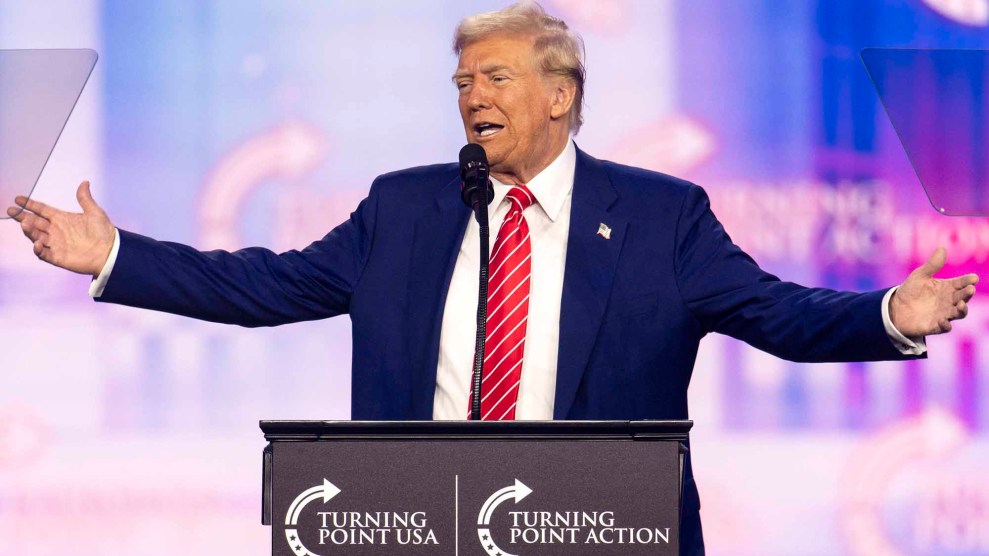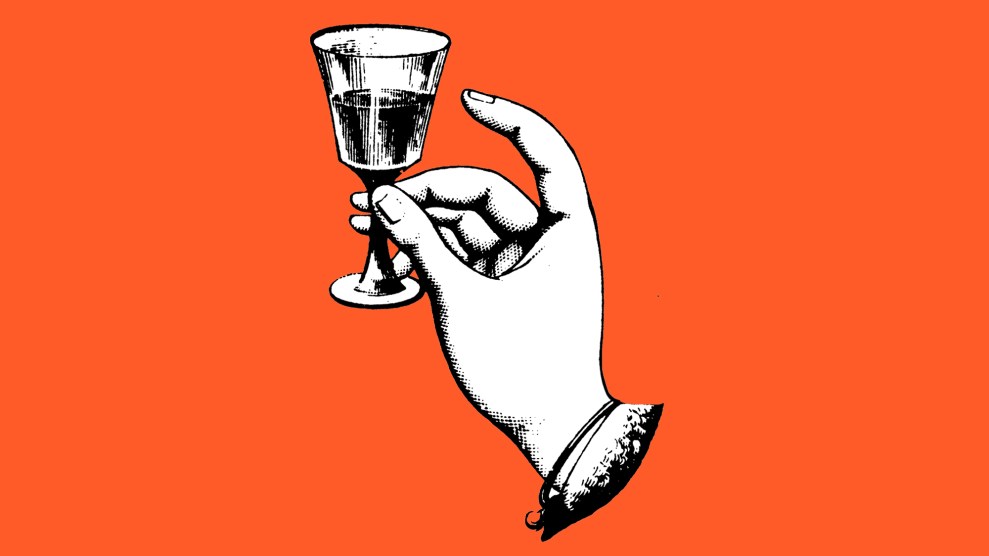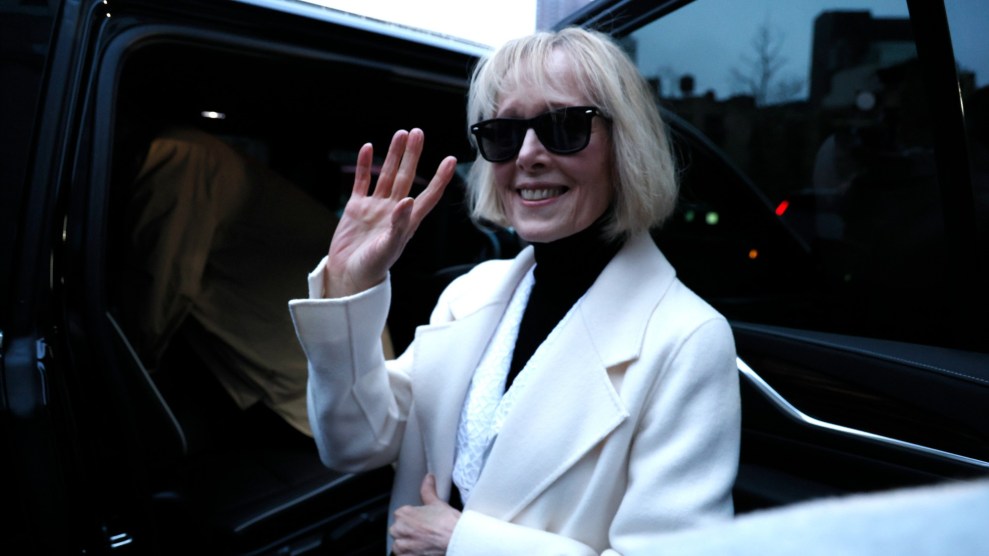Bill Clinton has helped craft an
agreement that will make treatment available for millions of
HIV/AIDS patients in 122 countries served by the Global Fund to
Fight AIDS, Tuberculosis and Malaria. If it sticks, the deal will
amount to a major expansion of the agreement to distribute the more
affordable fixed-dose combination (FDC) pills that the
Clinton Foundation brokered for 16 African and the Caribbean
countries last year.
According to the deal, co-sponsored by the Global Fund,
the World Bank, UNICEF and the Clinton Foundation, Indian
and South African companies will supply the medicines at one-third the price of the cheapest ones
available in the West, while U.S. companies will provide
diagnostic tests at one-fifth the market price. The Bush
administration, which organized a meeting last week in
Botswana to discuss the
safety of the generic FDCs — a meeting some AIDS
activists criticized as an attempt to discredit their use —
has so far resisted pressure to purchase the drugs using the
$15 billion it pledged for AIDS aid for Africa.
As the United Nations Special Envoy for HIV/AIDS in
Africa Stephen Lewis explained in a press release:
“…the Clinton Foundation will negotiate the
drug prices, UNICEF will employ its procurement capacity
and the Global Fund and World Bank will provide the
funding.
We’re talking of
fixed-dose combinations of generic drugs, pre-qualified by
the World Health Organization, to be purchased
overwhelmingly from generic companies based in India, at
prices as low as $140 per person per year.”
In an interview with the New York Times, a
representative of the Clinton Foundation conceded that not
all the companies mentioned in the announcement had indeed
signed on to its terms — indeed, to judge from the Times’ interviews with
the companies in question, there’s a lot of
finalizing to be done. Anil Soni, Chief Adviser to the Global Fund’s Executive Director,
nevertheless said that the groups proceeded with the
announcement because:
“We want to make clear to our recipients
that it is possible to purchase generics that are up to the
W.H.O. quality standard.”
The FDCs combine several anti-retroviral (ARV) pills
that are currently administered to HIV/AIDS patients. This
week’s announcement is a major boost for generic FDCs and is
also significant because the Chairman of the Global Fund
Board is Tommy Thomson, Bush’s Secretary for Health and
Human Services. It remains to be seen if the move
will make the Bush administration rethink its
opposition to FDCs. (It prefers that groups purchase the more
expensive ARV treatments from Western pharmatheutical companies — a
policy criticized for boosting those companies’ patent
rights and coffers while millions of sufferers go untreated.
Critics of generic FDCs argue that they have not been
sufficiently tested and that the success of the ARV
combinations rests on the fact that they can be
tailored to the needs of the particular patient. Though the
effort to provide affordable treatment to Africa’s HIV/AIDs
population is admirable, they say, cutting corners on safety
as a trade-off for price is not — and may lead to higher costs in
the long-run. As Thompson Ayodele, the coordinator of the
Institute of Public Policy Analysis in Lagos says:
“Some suspect that the WHO’s main reason for
promoting FDCs is that they are cheaper: two fixed-dose
combination pills costs $140 per patient compared to about
$600 per year for six pills per day. But the cost of the
pills must not be the sole deciding factor in their use.
Many are concerned that the WHO, in its attempt to provide
anti-retroviral drugs to millions of AIDS victims, is
glossing over safety and downplaying efficacy. Indeed, FDCs
may well offer false economy: if the pills lead to increased
resistance, then they will not be cost-effective because in
the future more money will have to be spent on second-line
therapies to treat resistant strains.”
Controversy over the FDCs aside, the project’s
implementation will be complicated by poor health
infrastructure and corruption in the recipient countries.
One fear, as Chairman of the
Clinton Foundation’s AIDS Initiative Ira Magaziner
points out, is that:
“The program could fall apart if black
marketeers get in and start diverting medicines.”
The joint project should meet World Health Organization’s
goal of providing treatment to
3 million HIV/AIDS patients in poor countries (minus
Brazil, which provides free treatment) by 2005; it is
estimated that less than 200,000 of the 6 million patients
who need the treatment actually receive it. The Global Fund has
committed $1.25 billion for AIDS projects over two
years, while the World Bank has pledged
This week’s announcement is an important step in making
HIV/AIDS treatment accessible to the world’s poor. The
Gates Foundation, which has devoted much of its AIDS aid
to Botswana, has experienced success with ARV treatments as
a result of a collaborative effort with a pharmaceutical
company and an aggressive government campaign. It is hoped
that generic FDCs will prove to be a safe and more affordable
alternative that will help achieve similar results elsewhere. The Bush administration should support this effort and
purchase generic FDCs as part of its aid to Africa, as well
as scrap its policy of denying funding to clinics that treat
HIV/AIDS patients if these clinics perform abortions.
Africa’s AIDS epidemic is inextricably tied with its
economic underdevelopment and these problems won’t be solved
until the AIDS crisis is under control. As World Bank
President
James Wolfensohn said:
“We regard AIDS as being the single most
important issue at the moment in Africa because of the
devastating effect that it has had throughout the continent,
and it is not something that is deferrable to discussions of
economic or other issues.”














